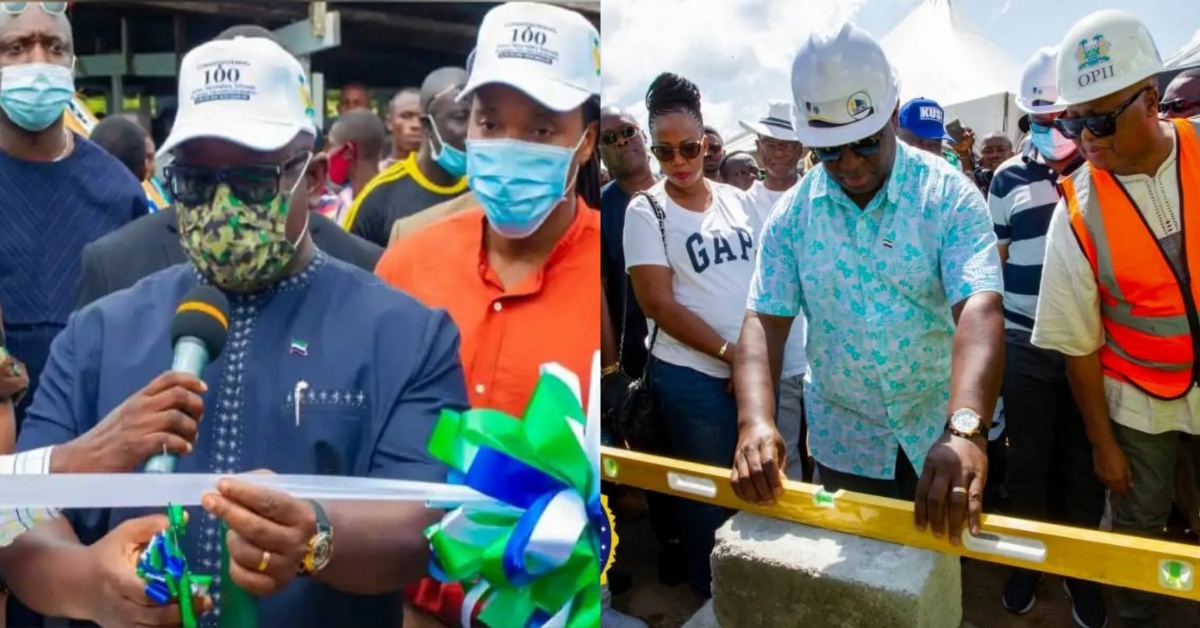Promoting the development of child-friendly schools equipped with recreational facilities, toilet facilities and safe places in each district, is one of the ambitious promises of the New Direction Government of the Bio Administration.
I describe it as ambitious because I know that the lack of such facilities has been a problem in government and government-assisted schools since independence. Education, they say is not cheap, so the provision of a universal free primary and secondary education programme would be a herculean task for any new administration. Apart from the over 21% budgetary allocation the Bio administration is disbursing to the education sector, the government is poised to build 132 new senior secondary schools across the country which would be equipped with science laboratories. Indeed, the Bio administration should continue building the school infrastructure across the country to effectively execute the FQSE programme.
The American politician, Carol Bellamy once said “Creating a world that is truly fit for children does not imply simply the absence of war. It means having primary schools nearby that educate children, free of charge. It means building a world fit for children, where every child can grow to adulthood in good health, peace and dignity.”
The huge amount of resources we invest in school infrastructure help in creating a world of learning that will hugely benefit the next generation of leaders.
Despite the challenges around the world, coupled with the austerity setbacks that are affecting Sierra Leone, the administration of President Julius Maada Bio has made impressive progress towards school infrastructure which is one of the pillars of the FQSE programme in Sierra Leone.

For instance, President Bio on 23 October 2020, commissioned 16 infrastructure sub-projects completed by the National Commission for Social Action (NaCSA) and handed over the schools and health centres to residents of Gbinti in the north of the country. The President also commissioned 30 projects and handed over newly built primary schools including a Health Centre for the people of Karene.
On September 10 2021, the President commissioned 100 junior secondary schools (JSS) in Bo, Kenema, Port Loko and Bombali Districts in the South, East, North-west, and Northern regions respectively. The project was funded by the European Union (E.U.), following a clarion call by His Excellency President Julius Maada Bio during the launch of the FQSE in 2018.

The 100 JSS project’s core value support included the rehabilitation and upgrading of 155 school buildings, the construction of 19 new buildings, including libraries, science and computer laboratories, the construction or rehabilitation of 282 toilets, the construction or rehabilitation of 78 hand-dug wells, construction or rehabilitation of 9 staff quarters and the supply and installation of 50 solar units.
In addition, since the Bio administration came to power, there has been more rapid progress in the approval of schools than in any other government in the history of Sierra Leone. For example, the total number of approved schools increased from 10,747 in 2018 to 11,168 in 2019. Out of these schools, 13.8% are owned by the government. The Minister of Basic and Senior Secondary Education (MBSSE) is quoted as saying that the government has created early childhood development (ECD) policies and the administration has built 100 ECD classrooms with toilet facilities and access ramps for children with mobile disabilities.

Moreover, the ongoing construction of a state-of-the-art University for the people of Kono is another milestone achievement, and of the several goodies from the result-oriented President Bio. Since the turning of the sod by the President on November 19 2021, the construction of the Kono University has been going on rapidly. For the first time since independence, residents of the rich-diamond town would realize their dream of getting into a university which would be accredited by one of the universities in the United Kingdom.
Rome, they say was not built in a day, and Sierra Leone is not there yet, because the challenges are huge. But the pace at which the Bio administration is going, especially in the education sector, is very encouraging.
However, I believe the sustainability of this fantastic project depends on the lifespan of the Bio administration which I firmly believe will be renewed on June 24 2023 by voters.
I am of the firm conviction that the people of Kono -and those across the country- would once again overwhelmingly vote for President Bio the same way they did in 2018. This will ensure the completion of the Kono University project which President Bio is determined to achieve in his second term as President of the Republic of Sierra Leone.


 Post a comment
Post a comment








